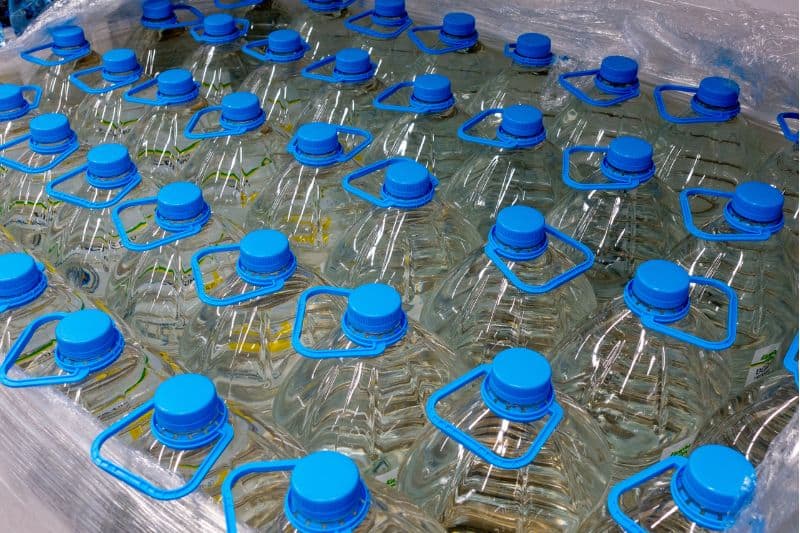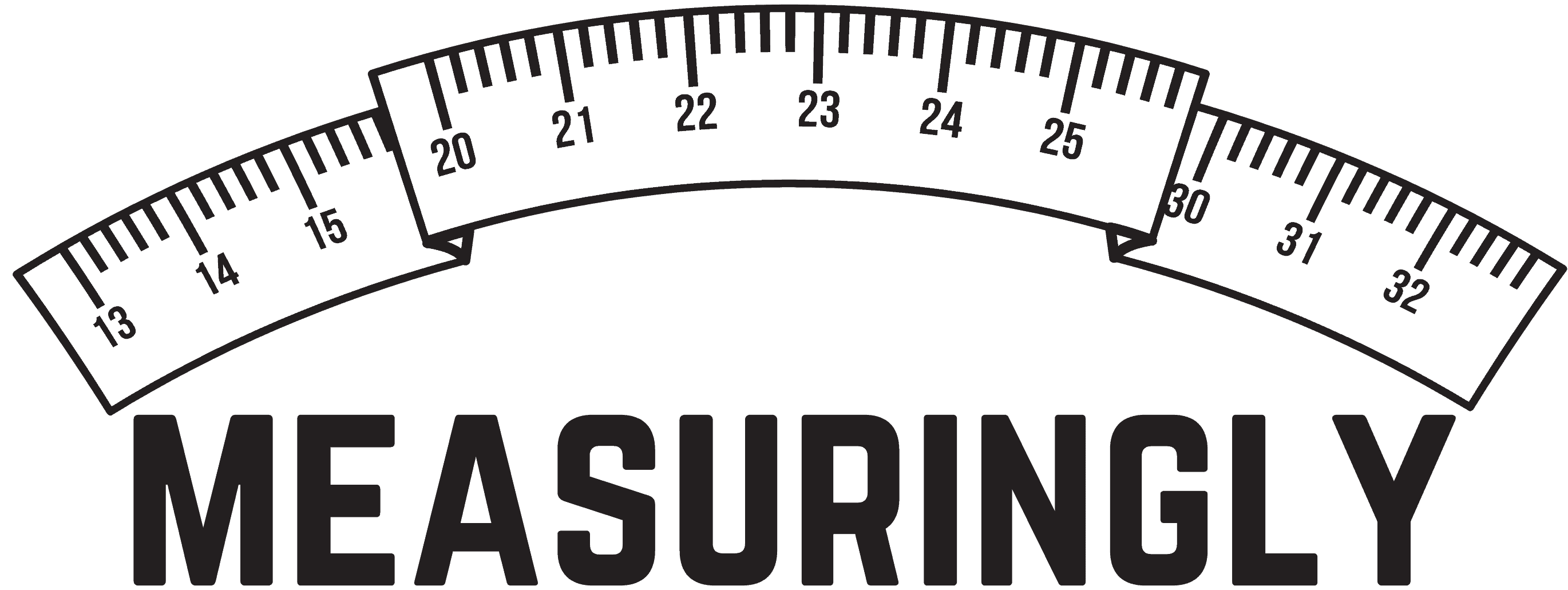Water is essential to life, and understanding the weight of water can be helpful in various situations.
Whether you’re curious about the implications of carrying water during a hiking trip or need a specific amount for a science experiment, it’s useful to know the weight of 3 liters of water.
To determine the weight of 3 liters of water, you must know the basic principle behind water’s density. Water has a density of 1 gram per milliliter (g/mL).
When you apply this knowledge to liters, 1 liter of water weighs 1 kilogram (kg). Remember, you can easily calculate the weight of 3 liters of water.
Read: How Much Does a Gallon of Honey Weigh? (Detailed Guide)
Let’s dive deeper!
Water has a density of about 1 kilogram (2.2 pounds) per liter (kg/L) at room temperature. So, 3 liters of water = 3 x 1 kg = 3 kg (6.6 pounds).
Understanding Water Measurements

Water is essential to our daily lives, and it’s important to understand how to measure its weight.
In the metric system, you can easily calculate the weight of water by using its volume in liters and knowing that 1 liter of water weighs 1 kilogram (kg). Further, 1 liter of water is equal to 1000 milliliters (ml).
When measuring water, you may also encounter other units of measurement, such as:
- Ounces (oz): One fluid ounce of water weighs approximately 1.04 ounces (29.57 grams).
- Gallons (gal): One US gallon of water weighs about 8.34 pounds (3.78 kg), while one Imperial gallon weighs about 10 pounds (4.54 kg).
Remember that these conversions are specific to water; other liquids will have different weights based on their density.
To summarize, measurements of water’s weight can be found in various volume or mass units.
Keep the connection between liters and kilograms in mind when determining the water weight, and don’t forget to use the proper conversion factors when dealing with other units.
How Much Does 3 Liters of Water Weigh?

A friendly reminder to always stay hydrated! So, you’re curious about how much 3 liters of water weigh. It’s pretty simple to figure that out, and it’ll come in handy when carrying water for various purposes.
Water has a density of about 1 kilogram (2.2 pounds) per liter (kg/L) at room temperature. This estimation holds true for most situations, as long as the temperature is reasonably close to room temperature.
Now that you know the density, let’s calculate the weight of 3 liters of water.
To do this, multiply the volume by the density:
Weight = Volume × Density
In your case:
Weight = 3 L × 1 kg/L
The liters (L) will cancel out, leaving you with a weight in kilograms (kg):
3 liters of water = 3 x 1 kg = 3 kg (6.6 pounds)
So, 3 liters of water weigh approximately 3 kilograms.
Now you know that 3 liters of water weigh approximately 3 kilograms or 6.6 pounds.
This information can be helpful in numerous scenarios, like when you’re hiking and need extra water or just going grocery shopping and have to consider how much you can comfortably carry.
It’s important to remember, though, that this calculation assumes that you’re working with pure water. Other liquids, such as coffee or juice, can weigh more or less than water due to their different densities.
Additionally, remember that water weight can change slightly with temperature, particularly if the water is warm or cold.
Although these weight changes are usually minor and won’t make a big difference in everyday situations, it’s still good to be aware of them.
So, now that you know how much 3 liters of water weigh, remember to stay mindful of the weight when carrying or lifting large containers. Always practice proper lifting techniques to protect your body.

Practical Aspects of 3 Liters of Water
Knowing the weight of 3 liters of water can be helpful in many everyday situations.
Now that you know the weight, consider situations where this information can be useful.
Hiking
For instance, when hiking, planning how much water to carry is essential, as it affects your luggage weight.
It’s good to be aware that carrying 3 liters of water will add 3kg (6.6 lbs) to your backpack.
Grocery Shopping
Another example is when you go grocery shopping. A long walk home carrying your shopping bags can be burdensome.
If you decide to buy a large bottle of water, remember that a 3-liter bottle adds about 3kg (6.6 lbs) to your burden.
Exercise
Hydration during exercise is essential. Many athletes use this knowledge to determine their water intake during training sessions or competitions.
To ensure optimal hydration, aim for a specific amount of water to drink throughout an activity, including 3 liters if necessary. Knowing the weight will help you plan better.
To help you visualize the volume of 3 liters, here are some comparisons:
- 6 standard 500-ml bottles of water
- A little bit more than 1/2 a gallon (3.785 liters)
These comparisons may come in handy when estimating how much space you will need to store or transport 3 liters of water.
This can help you plan and manage different situations in your daily life more efficiently.
What would happen if you drank 3 liters of water in a day? Watch this:
Exploring Liter-to-Kilogram Conversion
A liter is a unit of volume, while a kilogram is a mass measurement. As mentioned, to convert liters of water to kilograms, you can use the density of water: 1 liter of water at room temperature weighs approximately 1 kilogram.
It’s worth noting that this liter-to-kilogram conversion is unique to water because of its density.
You would need to find their specific density for other liquids or substances to perform a similar conversion. Here’s a quick summary of the conversion process:
- Determine the substance’s density (in kilograms per liter)
- Multiply the volume (in liters) by the density (in kilograms per liter)
- The result will be the mass in kilograms
Now that you know how to convert liters of water to kilograms, you can confidently tackle any water-related weight questions that come your way.
Impact of Temperature on Water’s Weight
You might wonder if the temperature has any effect on the weight of water. Interestingly, the weight of water can vary somewhat depending on its temperature.
Let’s dive into a few details to help you better understand this concept:
At its densest point, which is around 4 degrees Celsius (39.2 degrees Fahrenheit), pure water has a mass of approximately 1 kilogram (kg) per liter (L).
So, 3 liters of water at this temperature would weigh close to 3 kilograms (6.61 pounds).
As the water’s temperature deviates from this densest point, its weight will change slightly. When the water is heated, it expands, meaning that its mass is distributed over a larger volume.
This expansion causes the density to decrease, but the overall mass remains the same.
Conversely, when the water is cooled, it contracts. However, if the temperature drops below 4 degrees Celsius, water expands again as it approaches the freezing point.
This is why ice is less dense than liquid water. The weight remains constant during this process, but the changes in volume result in slight density variations.
To sum it up, 3 liters of water will have a very similar weight throughout the entire range of temperatures but may differ slightly depending on its density and volume changes.
Read: How Much Does a Bale of Cotton Weigh?
Common Uses of 3 Liters of Water
Gardening
You may find that your plants need watering, especially during hot and dry seasons. 3 liters of water can water a small garden or a few potted plants.
Cooking
You can use 3 liters of water in the kitchen to cook various dishes. This amount is suitable for making soups, boiling pasta or rice, or even steaming vegetables.
Drinking
Staying hydrated is important for your body, and 3 liters of water can meet the daily recommended intake for some individuals.
Remember that the amount needed varies based on factors like age, weight, and activity level.
Emergency Preparedness
It’s always a good idea to be prepared for emergencies. Having 3 liters of water on hand can be helpful in situations like power outages, water supply disruptions, or natural disasters.
Cleaning
You can use 3 liters of water for small cleaning tasks around your home. For example, you can use it to wash your dishes, clean surfaces, or refill your steam mop.







